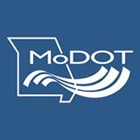The following letter was written by Missouri Highways and Transportation Commission Chairman Stephen R. Miller.
Dear Reader,

Miller
Genevieve is a young woman pursing graduate work in computer science at a university in Pennsylvania. She is home visiting her family in Kansas City for a month this summer. I met Genevieve at Union Station in Kansas City. I was there on Sunday afternoon to catch the train to St. Louis for early morning meetings in St. Louis with business and civic leaders to discuss “The Road to Tomorrow” – MoDOT’s latest effort to re-vitalize public interest in the reconstruction of Interstate 70. For me, the trip represented an attractive option – I did not have to fight airport security and crowds nor worry about the traffic on I-70. It gave me a relaxing ride during which I had a quiet, serene environment to work on revisions to an appellate brief due later in the week and prepare for my meetings the next morning.
For Genevieve, the train was not an option, it was a necessity. Genevieve is blind. Her aunt dropped her off at Union Station, spotted me in the waiting room and asked me if I would allow Genevieve to take my arm as she navigated the stairs and railroad platform along with her guide dog, Peru. Genevieve was traveling to Warrensburg to visit her friend, Kelsey, another blind young woman, for the week and the train represented a safe, affordable means for her to travel. As Peru stretched out on the floor of the train, Genevieve spoke excitedly about her travel. She has ridden the train before, even taking it from Pennsylvania back to Kansas City. It is a long trip but less stressful than air travel on both her – and Peru.
As I walked through the four cars of the Missouri River Runner, I saw Missourians of all ages, races and economic backgrounds. Each had their own reasons and story for being on the train that day. I stopped and spoke with a Boy Scout leader returning from Philmont Scout Ranch in New Mexico with 12 scouts from St. Louis. (He seemed a little worse for the wear with his leg in a cast but grateful for the additional space of the rail car.) There was a father and son, a young male millennial watching a movie on an iPad, mothers traveling with young children and some businessmen.
As the beautiful Missouri countryside raced by, the train rocking gently and the low horn of the locomotive occasionally sounding, I was struck once again by the importance of transportation – in all its various modes. Passenger rail travel is just one of those modes for which the Commission is responsible. In my six years on the Commission, I have watched on-time performance and ridership increase dramatically. Ridership has grown by 72 percent since 2007, and of all the Amtrak routes in the country, the Missouri River Runner has climbed from 29th to second in the nation in customer satisfaction.
Missourians have told us they want more opportunities for passenger rail. They want increased frequencies on the existing route as well as new routes serving additional areas of the state. This increasing demand is not unique to Missouri and is prompting many states to invest in improving service, speed and frequencies of passenger rail. Capital investment in passenger rail in Missouri is falling further and further behind other states, which is unfortunate. Passenger rail is not only a safe and environmentally friendly form of transportation, but also an engine for economic development and civic pride.
My trip reminded me that even as we fight to save our current roads and bridges and as we look to the future for ways to rebuild I-70, we must also look to the past as a reminder that the transportation of the future must be an integrated system that embraces all modes of transportation. So, thank you Genevieve and Peru for showing us the way – and safe travels!
Let’s keep moving Missouri forward,
Stephen R. Miller
Chairman
 The Missouri Department of Transportation Aug. 19 posted job openings for two railroad safety inspectors for its railroad operations staff.
The Missouri Department of Transportation Aug. 19 posted job openings for two railroad safety inspectors for its railroad operations staff.